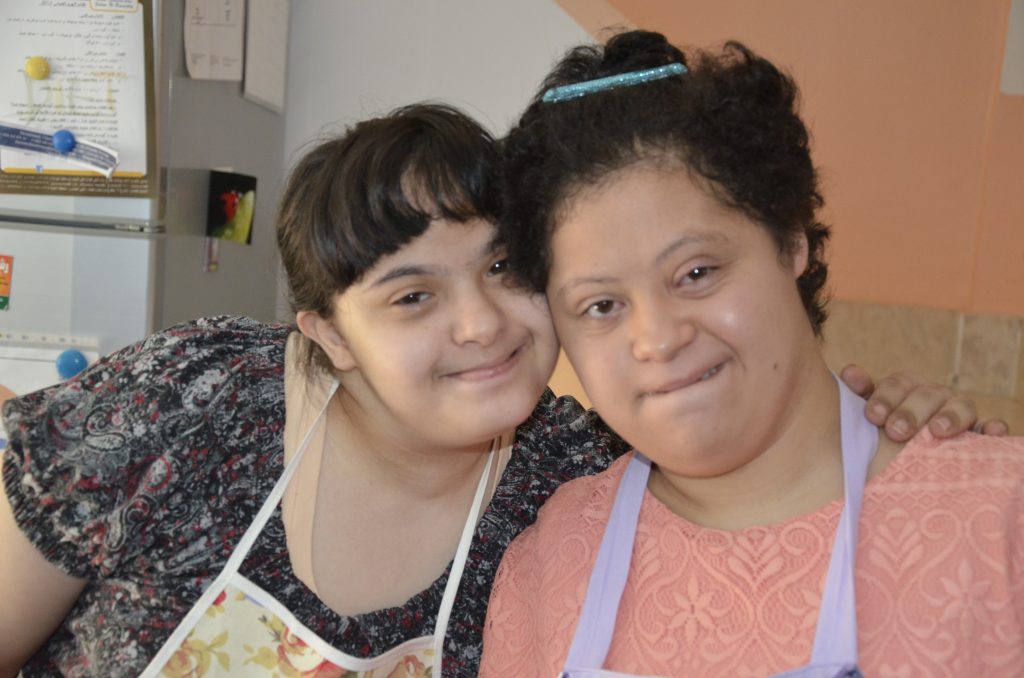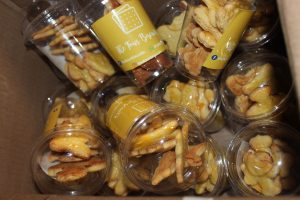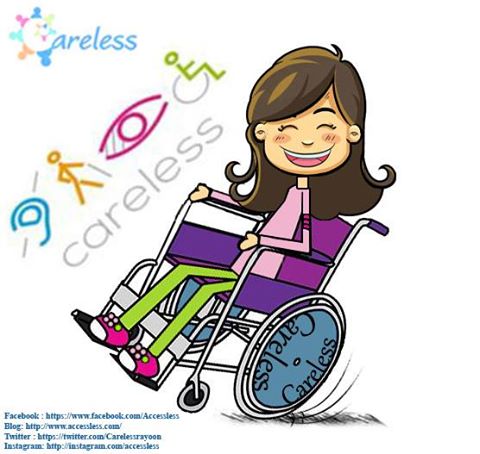Down’s Syndrome: When discrimination takes the biscuit… bake cookies
A group of entrepreneurial Egyptian women with Down's Syndrome have proven that the only handicap they suffer is a financial one as they seek to expand their successful baking business.

Monday 9 July 2018
In addition to the challenges posed by their gender, Arab women with disabilities have to deal with additional social hurdles, such as less access to employment opportunities than their peers without disabilities. This is partly due to the broader issue of limited access to education, employment, medical facilities, social connections and marriage opportunities in particular conservative societies where the status of women is relatively low, which leaves them isolated and vulnerable.
The situation has slowly begun to improve in recent years, with numerous specialised NGOs, organisations, charities and individuals working towards raising awareness and integrating people living with disability into every aspect of life. The Four Biscuits is one such effort which aims to empower young people with Down's Syndrome (cognitive disability) by providing them with training in baking skills, then selling their products at local markets and online.
The Egyptian initiative began when the parents and siblings of a group of young women with Down's Syndrome got together to enable their daughters to take part in social activities like outings to the cinema, the swimming pool, restaurants, which the families believed their daughters had the right to, just like anyone else their age. The families also wanted to make a project by them and for them. Initially they thought about opening a bakery or café where they would be able to integrate into society via direct interaction with the public. However, as such a project requires a significant financial investment, the families decided to start small with a home-based bakery business with a social media shopfront on Facebook and Instagram.
‘The Four Biscuits' consists of four girls living with Down's Syndrome, hence the name, all of whom attended a special-needs school where they met and become friends. The biscuits/cookies that they sell are based on a special Swiss recipe from Irene Salem, the mother of one of the girls, and it proved to be so popular with people that the girls and their families decided to make this their signature product. Although the Four Biscuits began as four girls, one of girls was forced to drop out when her parents decided to enroll her in a special-needs education centre.
To remain true to their name, the remaining three members organised an open day last February to find their fourth biscuit. Following a day of fun activities, baking and a large gathering of people with Down's Syndrome, the team's fourth partner was chosen.
The three original girls are: Sherihane Salem, 20, who loves handicrafts and socialising with friends, Heidi Adel, also 20, who adores singing, putting on make-up and doing housework, and Seba Ahmed, 21, who is very passionate about swimming and photography. The newest member of the team is Mariam, an Olympic champion in horse riding who has travelled to many international competitions, who also works part-time as a teacher at a local NGO. In her spare time, Mariam loves playing music, especially the piano.
The Four Biscuits was officially launched in August 2017 via their Facebook page and they soon started to receive orders. People loved the idea instantly and encouraged the team to carry on and expand but this clearly requires major funding.
Nada Ahmed, who is responsible for the Four Biscuits' public relations, explained that the project was only made possible thanks to funding from the European Cultural Foundation's Idea Camp. The team's idea was selected from among 600 other rival ideas. Eventually, they were chosen as one of 50 ideas which would receive both technical and financial support from the ECF for the research and development phase of the project.

At the start of their venture, the team sold and specialised in plain biscuits made according to a secret Swiss recipe that they guard jealously. In addition to plain, the Swiss biscuits are also available with a sugar fondant topping. Their newest product is a chocolate chip cookie which the launched a few weeks ago.
There are approximately 8.5 million to 12 million people with disabilities in Egypt, according to Plan International, and often they are stigmatised, hidden away by their families, and/or denied work opportunities. These factors both reflect and contribute to the marginalisation people with disabilities experience in Egypt and across the region. Society finds it “hard to accept any differences of any kind and no progress can be achieved unless people learn to accept each and every citizen regardless of gender, religion, appearance, colour, race, disability or not,” believes Nada Ahmed. “People with special needs have great potential that can push any society forward. They can, if empowered, bring so much innovation and success to their nations.”
When asked if the girls endured any discrimination or bullying, Nada said that it is “more discreet and indirect discrimination like judgemental looks but never amounting to bullying”.
According to the team, the main message that they want to convey is that “disability is an illusion. We all have certain limitations, obstacles and challenges to overcome, but that is because we are simply human; these obstacles gives us the energy to struggle and to fight back, reaching our dreams”. They believe that disability is the creation of society because “we all lack something, so we are all disabled in some way. A chromosome less is just like any other human vulnerability.”
In terms of future plans, the Four Biscuits aim to expand their team and let other youth with Down's Syndrome to join the initiative, which they intend to take nationwide. With ambition like that, their own real disability is financial.


